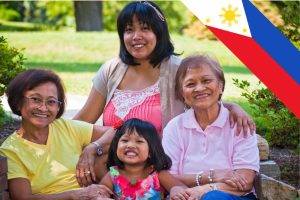Medical Channel Asia presents the weekly Asian medical news bulletin, bringing you essential healthcare news from across the region.
This week’s Asian Medical News bulletin covers the Pertussis outbreak in Thailand, the extreme cold wave in Vietnam and more.
Thailand
Thai health officials are urging immediate vaccination against pertussis, also known as whooping cough, following a severe outbreak in Songkhla’s Health District 12, which has seen 45 cases and one fatality in Pattani Province. Particularly vulnerable are children under one year, with the majority of cases being unvaccinated. The current vaccination rate in affected areas is only 62%, significantly lower than the desired 90% for herd immunity. Symptoms include a prolonged period of continuous coughing, and the disease is highly infectious, spreading through coughs, sneezes, and close contact. Authorities recommend vaccination for children, pregnant women between 27-36 weeks, and adults in close contact with infants to curb the outbreak.
Malaysia
Authorities in Malaysia blocked 1,675 websites selling illegal pharmaceutical products and seized products valued at over RM500,000. The majority of these illicit sales occurred on e-commerce platforms. The operation, coordinated by Interpol and involving various Malaysian agencies, also resulted in the confiscation of 13,552 units of unregistered pharmaceutical products at major entry points, with cosmetics, gastric disease treatments, and steroids among the most confiscated items. Additionally, 96,691 illegal pharmaceutical products worth RM417,291 were seized from sellers and business premises. This international effort led to 72 arrests and the closure of over 1,300 advertisement links worldwide.
Also reported this week:
Protecting HIV Patients In Malaysia from Workplace Discrimination
Philippines
The Department of Health (DOH) in the Philippines reported five cases of traumatic amputations due to fireworks use the day after Christmas, with victims ranging from minors to adults, all male. These injuries were attributed to both illegal and legal fireworks, leading to severe hand and finger injuries. The DOH has recorded a total of 52 fireworks-related injuries, with a significant number occurring in the National Capital Region. They have issued a warning about the dangers of fireworks use and urged the public to avoid them. In response, the Philippine National Police (PNP) is intensifying crackdowns on prohibited firecracker sales, including online platforms. Meanwhile, injuries and incidents related to firecrackers continue to be reported across the country, prompting authorities to advocate for safer alternatives to celebrate the New Year.
Also reported this week:
DOH Reports Full Recovery from ‘Walking Pneumonia’ Cases in the Philippines
DOH-5 Encourages Healthy Holidays: Prioritising Nutrition and Safe Play for A Festive Season
Palawan Unites to Eliminate Malaria: A Roadmap for a Malaria-Free Future
Singapore
A foreign doctor in Singapore, Dr Queck Kian Kheng, has been fined S$50,000 by the Singapore Medical Council’s disciplinary tribunal for moonlighting as a locum and earning approximately S$331,500 illegally. This fine is in addition to a S$70,000 fine previously imposed by a district court for working without a valid pass. The tribunal found Dr Queck’s actions as improper conduct that brought disrepute to the medical profession. He has also been ordered to submit a written undertaking against such future conduct and to pay the costs of the proceedings.
Also reported this week:
New Study Unveils Altruistic Behaviour of Cancer Cells in Breast
Vietnam
Northern Vietnam is currently experiencing a severe cold wave, with temperatures dropping to 7-8 degrees Celsius in Hanoi. This harsh weather has led to a sharp increase in hospital admissions, particularly for respiratory and cardiovascular issues. Hospitals, including the National Geriatric Hospital and the Hanoi Medical University Hospital, are seeing patient numbers rise by 1.5 times, with some facilities exceeding capacity. The cold spell, persisting since December 16, has notably affected both the elderly and young children across various provinces, leading to a higher incidence of acute strokes and respiratory illnesses. This situation highlights the urgent need for robust healthcare support to manage the adverse effects of extreme cold weather on public health.
Indonesia
The Indonesian Health Ministry has confirmed the presence of the COVID-19 sublineage JN.1 in the country, with at least 41 cases identified. This variant, considered highly transmissible and a variant of interest by the World Health Organization, has been found mostly in Jakarta and Batam, Riau Islands. Despite its prevalence, most JN.1 cases have resulted in mild symptoms. However, concerns are rising as the year-end holidays approach, with millions set to travel. Health authorities are urging the public to maintain hygiene practices and vaccination, especially for vulnerable groups. The government is also considering providing additional booster doses to further protect against this and other emerging variants.














